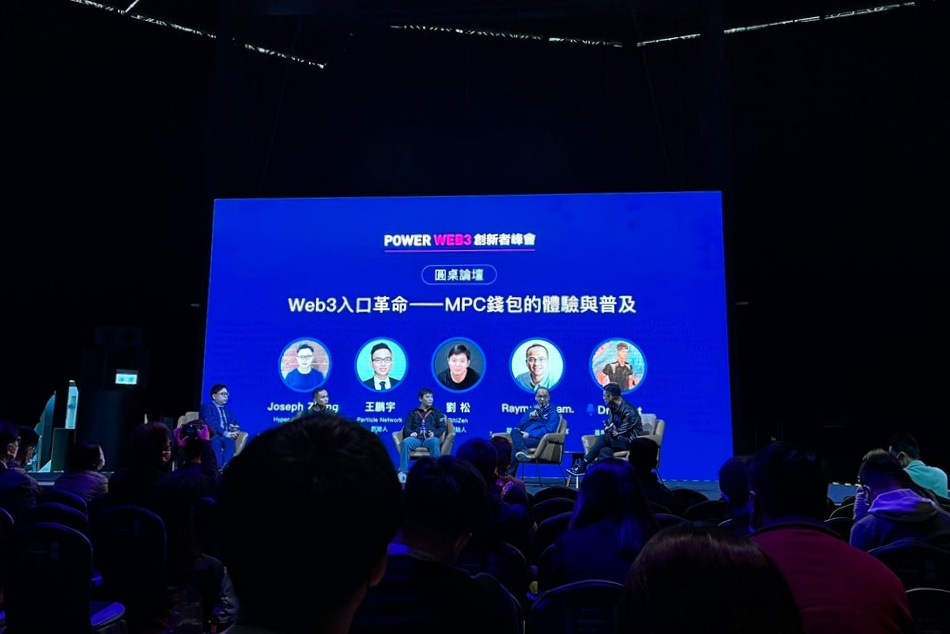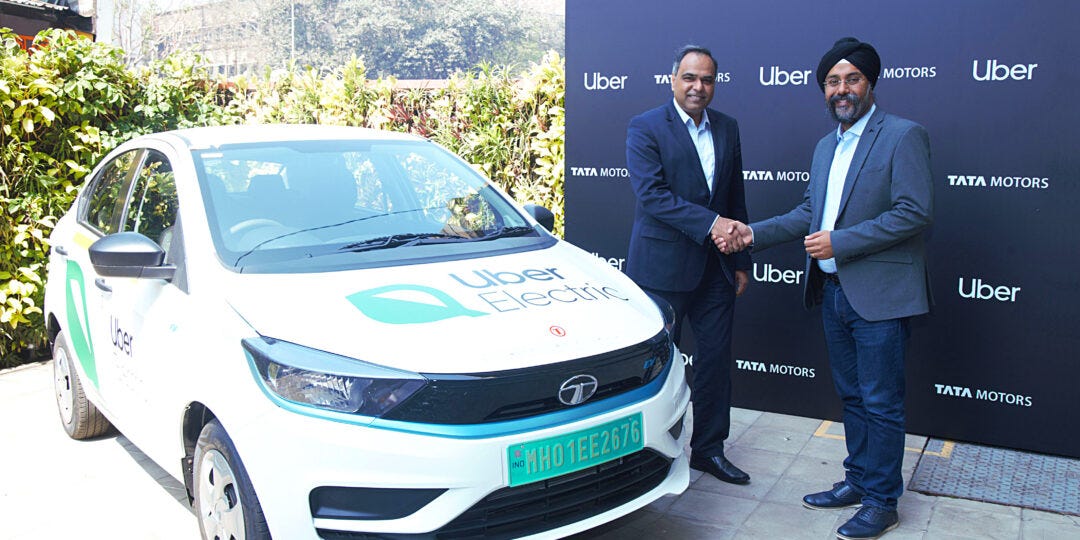Hong Kong makes move to become a crypto hub (and more)
Asia Tech Review: 27 February 2023
Welcome back,
The US-China tech war is centre stage this week with a range of stories covering China’s ban on big tech using ChatGPT, Beijing’s apparent plan to beef up on semiconductor patents, the weaponisation of Chinese IP courts, the deepening battle to win the important lithium processing industry, and the race to dominate the satellite world. That’s all without any mention of TikTok, a rare week indeed!
It’s not a tech story per se, but Reuters has an important investigative story that found Dow’s promise of recycling old shoes into running tracks, playgrounds and more has run hollow. The news agency placed trackers in 11 pairs of donated shoes, only to find that none were recycled with a number popping up in markets across Indonesia.
That’s all for this week—see you next Monday,
Jon
Stories in focus
Hong Kong is making moves to be a crypto hub

Singapore dominates the mindshare of crypto hubs, particularly in Asia, but Hong Kong is bidding to change that with a series of proposals.
Most eye-catching is a proposal that could see it lift a ban on retail investors buying crypto. Hong Kong has invited industry experts to give their take on the proposal—however there are caveats: exchanges selling crypto tokens would need to be licensed and (potentially) only top digital assets may be made available, too.
Still, it’s an interesting about-turn that will make Hong Kong more attractive to crypto companies… many of which come out of China and yet turn to Singapore for regulatory shelter. Indeed, some media have reported that Hong Kong’s have a tacit nod from Beijing so long as they don’t overshadow China’s financial system.
Hong Kong’s moves are fairly contrarian, too, given that most other governments, which are cracking down harder on crypto and exchanges following the collapse of FTX and subsequent revelations of mismanagement which emerged last year. The US SEC, for instance, has cast its eye on areas like stablecoins and even NFTs, suggesting that it might take a hardline on all things crypto.
Related: Crypto exchanges Huobi, OKX are among those eying Hong Kong licences link
No ChatGPT for China’s Big Tech
China has told big tech companies, including Tencent and Alibaba, that they are not to offer access to ChatGPT services in China either directly or via third parties, according to reports. A number of Chinese firms have announced plans to launch their own rival services, but the state may well be involved in the final products as mentioned previously in ATR. Interestingly, The Nikkei reports that sources said the government made the demand because it believes that ChatGPT is spreading American misinformation.
In related news: A number of services providing ChatGPT access to mainland Chinese internet users have been blocked Link
Singapore and India make cross-border payments tie-up
A partnership that has been in the making for some time finally bore fruit as Singapore’s PayNow and India’s UPI tied up to allow cross-border transfers through both digital payment services.
The deal is the biggest of a series of link ups that Singapore’s MAS has undertaken. I wrote about some of the deals back in 2022—which included Thailand, Malaysia and Indonesia—and how they could spur increased economic co-operation. More crucially, they’re a sign of the future and how Southeast Asia is actively tackling these problems which, at least in the West, tend to be solved by private companies.
There could be a lot more to come with central bank digital currency (CBDC) pilots popping up across Asia. It’s quite funny when you consider how many people in the US complain of having to pay using cheques and issues connecting banks. The more communal nature of Southeast Asia has helped push these solutions. They’re far from perfect of course—the government as a gatekeeper is never great—but show Asia is no laggard.
China
Why is Renaissance China founder Bao Fan missing? Reports suggest he was in the process of moving some of his fortune from China and Hong Kong to Singapore in the months leading up to his disappearance. The firm said in a filing on Sunday that he is “co-operating in an investigation” with the government… watch this space link
JD.com is said to be planning to spend $1.5B on subsidies to compete with Pinduoduo in China’s budget e-commerce market—JD recently announced plans to exit Southeast Asia to focus on the domestic market, and this could be its first major move link
Chinese companies are seeking global projects to boost their already dominant 60% market share in lithium processing further still. Tesla, which has already said China is its biggest competitor when it comes to lithium, has lost out on developments that include Nigeria’s first lithium-processing plant, the contract of which was won by a Chinese firm last month link
China is likely to deepen its focus on semiconductor patents to intensify its chipmaking battle with the US, according to the insights of two government-related boffins link
Two of the country’s senior academics wrote that Beijing should amass a portfolio of patents that govern the next generation of chipmaking, from novel materials to new techniques. That should propel its semiconductor ambitions while giving China the clout to push back against US sanctions designed to hamstring its semiconductor sector, Luo Junwei and Li Shushen wrote in the bulletin of the Chinese Academy of Sciences.
China is also out to beat Starlink—according to researchers in the country, Beijing plans to launch close to 13,000 satellites thereby overtaking the fleet of Elon Musk’s space communications company link
Relatedly, China is allegedly using its legal system to revoke patents from US companies in areas deemed important, such as technology and pharma, to help its own companies—that’s according to US and EU officials link
Animoca Brands invested an undisclosed amount in Singapore-based decentralised electronic signature platform EthSign—the startup has raised $14M to date link
Positive news for Alibaba as it beat earnings estimates and that’s before the impact of China’s Covid reopening s felt in its business link
Baidu, meanwhile, announced a $5B share buyback plan after beating revenue estimates while it plans to launch its own chatbot link
Apple will reportedly use China-based Luxshare to develop its first augmented reality devices. If it does that, it would mark the first time the firm has used a Chinese partner to develop a first-generation product link
Sequoia is engaging independent experts on US national security issues to ensure that its investments in China don’t get caught in the crosshairs of the US-China tech war and the US political system, according to WSJ—it’s a move that makes total sense for a fund of that size and influence link
Tencent just terminated plans for its own VR hardware, but it isn’t giving up on the space—instead it is now said to be in talks with Meta to distribute its Meta Quest headsets in China link
Tencent is also making moves in web3 after hosting its first ‘web3 summit’ in Singapore, where its cloud announced a partnership with a number of blockchain infrastructure companies link
Taiwan
Former employees and insiders have raised doubts about TSMC’s $40B US expansion link
India
Uber plans to introduce EVs in India—Tata Motors has agreed to supply 25,000 vehicles to kick things off although the launch date isn’t clear link
The ride-hailing giant is looking to partner with third-party firms to ramp up its cab fleet in India link
Amazon put an ad-based streaming service inside its main shopping app in India in a bid to get young consumers using its app, and spending more. Nearly two years on and former employees say it is working, and the model could be repeated in other parts of the world link
Byju’s is apparently considering closing WhiteHat Jr, the coding platform it acquired 2 years ago for $300M, though it has denied the suggestion link
Web3 gaming startup Kratos Studios raised $20M at a valuation of $150M and IndiGG, a sub-DAO of Southeast Asia-based Yield Guild Games. The deal will see IndiGG’s token taken off the market with holders reimbursed. Kratos plans to launch its own token in the future, however link
If you’re interested in the finer details of how Google licenses Android to phone makers, its forced unbundling in India (via an antitrust ruling) makes for interesting reading link
Amazon’s Smbhav Venture Fund lead produce delivery startup FreshToHome’s newest $104M round link
Elsewhere, with some irony, Amazon is joining ONDC, the Indian government-backed e-commerce initiative that seeks to “democratize” online shopping aka dethrone dominant platforms like… Amazon link
Telco Airtel is said to be looking to sell its payments bank business to Paytm, and potentially make an additional investment in Paytm, too link
PE fund ChrysCapital could invest around $100M Lenskart, which would take its current round to $500M link
PayPal Ventures led a $20M investment in Mintoak, a SaaS platform focused on merchant services link
Southeast Asia
Grab beat revenue estimates, including doubling annual revenue last year, but it still lost $1.7B in 2023, albeit an improvement on $3.5B in 2021. Grab believes it can reach break even on EBIDA status this year (Gojek recently said similar) but overall profitability feels like a much longer term goal link
Wuling, which outsells Tesla in China, is also seeing success in overseas markets like Indonesia where its budget models are proving popular with early EV owners link
Wuling Air now dominates EV sales in the country, according to the Association of Indonesia Automotive Industries (Gaikindo). Since entering Indonesia last August, it’s sold some 8,000 vehicles. The number may be small compared to the manufacturers’ sales figures in their home turfs of the U.S. and China, but it’s equivalent to 78% of the EV market in the Southeast Asian country.

Netflix is said to be planning to open an office in Vietnam link
Indonesia is drawing on the structure of the stock market to revamp crypto trading and mitigate the risks exposed by the collapse of the FTX link
South Korea
A court in South Korea found seven ex-employees of a Samsung subsidiary guilty of illegally obtaining and transferring semiconductor-related technology to Chinese companies link
The US is reportedly likely to limit the level of advanced semiconductors made by South Korean companies in China link
You just finished reading Asia Tech Review, the weekly newsletter for keeping up with the tech industry across Asia.
If someone sent this to you, you can sign up for free at Asiatechreview.com



